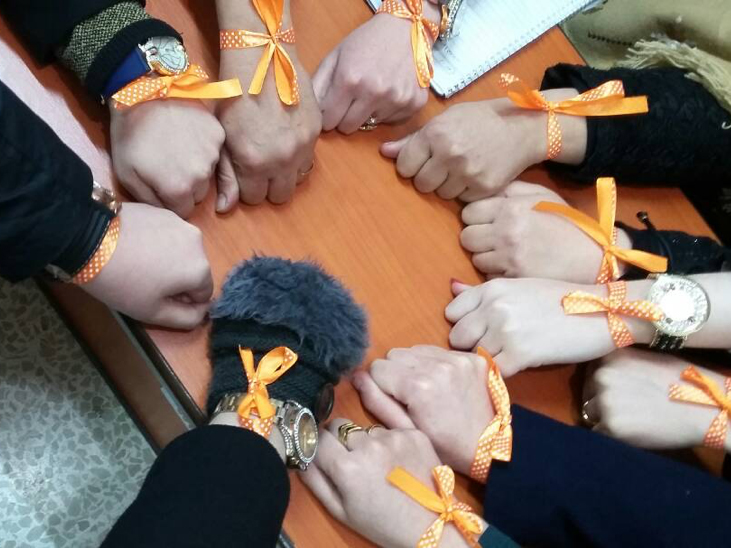Joint statement by a group of Syrian Civil Society Organizations on the Universal Periodic Review of Syria
Second Cycle Universal Periodic Review of Syria: a missed opportunity to ensure accountability
The first Universal Periodic Review of Syria took place in 2011, right after peaceful protests had started to take place in the country. In the 5 years since then, the Syrian context has altered significantly. Today the conflict in Syria is affecting the lives of millions, both in and out of Syria. There have been and continue to be gross human rights violations on all levels. Over 400,000 people have been killed1 and over 60,000 people have died in prisons, most having experienced torture.2 Four million, eight-hundred thousand Syrians have fled the country as refugees, while 6.5 million people have been displaced within the country.3 Sexual and Gender Based Violence is widespread and has been used as a weapon of war. Access to clean water, food, education and health care is extremely restricted in some parts of the country, with schools, hospitals and residential areas being directly shelled and targeted by the Syrian government.
Under these circumstances, the Syria’s second UPR cycle that took place on 31 October 2016 became another missed opportunity to ensure accountability for human rights violations occurring in Syria. As civil society groups based in Gaziantep working on monitoring and documenting of human rights violations in Syria on a wide range of issues from women’s rights to enforced disappearances, child rights to Internally Displaced People (IDPs), we came together on 31 October, at the office of No Peace Without Justice (NPWJ) to watch the live webcasting of the Working Group session. In follow up of the Working Group session and the 231 recommendations directed to the Syrian delegation, we came together for a post-UPR consultation meeting on 3 and 4 November.
This statement is adopted by consensus by the participants of this post-UPR session (list of signatories enclosed), after an in-depth discussion on the process, recommendations and strategies for follow-up and advocacy.
First of all, with regard to the process, we note that for many countries at the Human Rights Council and certainly for thousands of fellow Syrians, there was a shared feeling of absurdity of holding a regular session and watching the Syrian Government’s presentation of its National Report and its “achievements”, when the number of Human Rights violations in Syria has reached exponential levels since its last UPR review. In fact, the session had great potential with ‘the eye of the world’ focusing on Syria, and the actions of its government, but sadly, the interventions of the 71 delegations remained limited in achieving an effective and comprehensive review of the human rights conditions in the country.
With regard to the recommendations, we are glad to see a varying set of recommendations directed to the Syrian delegation. These included ratification of the Rome Statue of the International Criminal Court, ensuring accountability for all cases of violations and abuses of international human rights law and international humanitarian law as well as several recommendations on women’s rights, humanitarian access and so on. However, we remain concerned that the formulation of these recommendations were not Specific, Measurable, Attainable, Relevant and Time-bound (SMART) and treated the UPR session as a ‘regular session’ only, while not acknowledging or tackling the root causes of the conflict and the extreme suffering currently happening in Syria. On the other hand, we note that the recommendations that asked for a real change in actions by the Syrian Government were already grouped separately by the Syrian delegation and will probably be silenced within the process. A final group of recommendations, delivered by the Syrian Government’s political allies, limited an effective review as well, by restricting it to the topic of ‘terrorism’ rather than acknowledging the responsibility of the Syrian Government in the human rights disaster in the country.
In this context, we consider the Syria UPR session as a missed opportunity in working to alleviate the suffering of the Syrian people. In the follow-up and before the adoption of the outcome in March 2017, we call Human Rights Council member States to urge the Syrian delegation to engage with the UN human rights monitoring mechanisms more effectively. By the next HRC session in March 2017, Syria should present its addendum to the Council together with its pending replies to the 231 directed recommendations.
We take this statement as an opportunity to call on UN member States to remain accountable to the recommendations that they directed to Syria and to follow and monitor their implementation to contribute to the promotion and protection of Human Rights. We as Civil Society groups should be considered as counterparts in the monitoring of the implementation of the recommendations and ask member States to support, include and coordinate with civil society actors in their strategy and implementation for achieving this.
We, as Syrian Civil Society Actors, will continue to do our utmost to monitor and document Human Rights violations and continue working with all our energy on the path to creating a free, democratic and peaceful Syrian State, which respects and upholds the rights of all its citizens.
Sources:
- ‘Syria death toll: UN envoy estimates 400,000 killed’, http://www.aljazeera.com/news/2016/04/staffan-de-mistura-400000-killed-syria-civil-war-160423055735629.html
- ‘Monitor: 60,000 dead in Syria government jails’, http://www.aljazeera.com/news/2016/05/tens-thousands-die-syria-government-prisons-160521173306410.html
- http://www.unocha.org/syria.
